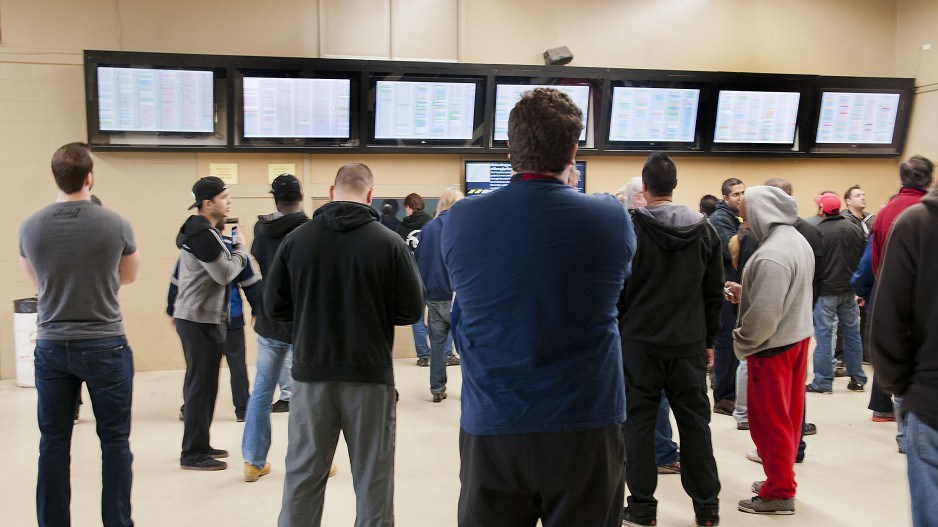Nine months of negotiations have thus far failed to deliver a new collective agreement between B.C. dockworkers and maritime employers.
That could be a concern for containerized cargo shippers, freight forwarders, retailers, bulk and break-bulk cargo companies and everyone else that depends on the free flow of goods through Canada’s Asia Pacific Gateway.
But there are signs of progress.
The union representing B.C. port workers has been without a new contract since the end of March, when the landmark eight-year deal between the 6,000-member International Longshore and Warehouse Union Canada (ILWU) and the BC Maritime Employers Association (BCMEA) expired.
Pressure to reach an agreement between the two sides has increased following the successful negotiation of new collective agreements between longshore unions and port employers in the United States.
In July 2017, the U.S. International Longshore and Warehouse Union signed a three-year extension of its contract with the Pacific Maritime Association. The original collective agreement ended a standoff that stalled cargo movement through major West Coast U.S. ports from mid-2014 through early 2015 and diverted some of that traffic north to the ports of Vancouver and Prince Rupert.
Earlier this month, the International Longshoremen’s Association (ILA) ratified an agreement with the United States Maritime Alliance (USMX). The six-year deal helps ensure labour and port service stability at East Coast U.S. and Gulf of Mexico ports until 2024.
It also forestalls the incoming tide of logistics chain automation that many observers believe will transform modern port operations.
ILA President Harold Daggett said in a press release that “the best [contract agreement] he [has] witnessed in his 50-plus year ILA career” eliminates the “threat of job loss from fully automated terminals, semi-automated terminals and automated equipment.”
Back in B.C., one of the bargaining units involved in port worker contract negotiations narrowly averted strike action September 6 when a tentative five-year agreement was reached between GCT Canada and ILWU Local 502.
GCT operates GCT Deltaport at Roberts Bank and GCT Vanterm in Vancouver.
Local 502 represents approximately 60 container shipping planners and assistant planners at the two container cargo terminals. As a result of the tentative deal, which was reached with the help of federal mediators, Local 502 withdrew its September 3 strike notice.
BCMEA’s negotiations with the other four ILWU bargaining units, and Local 514, the ship and dock foremen’s union, are ongoing.
And that, said BCMEA president and CEO Terry Duggan, is good news.
“That the parties are still talking is a very positive sign,” he said.
Failure to keep on talking or any other signs that negotiations have stalled would resurrect global shipping sector concerns about service reliability at B.C. ports.
That would be bad for local, regional and national business, especially with labour peace assured in major competing ports such as Seattle-Tacoma, Oakland and Los Angeles-Long Beach.
Vancouver’s port reliability suffered badly in the 1970s when there were lengthy longshore labour disruptions and again in the late 1990s when employers locked out the ILWU.
Illegal work stoppages also strained employer-union relationships. In addition, operations at the port’s container terminals have been disrupted by an ongoing dispute between container truckers and the port over pay rates and trucker wait times at container terminals.
Another eight-year deal between the ILWU and the BCMEA would go a long way to erasing those memories.
Duggan said securing that length of contract is unlikely, even though “a longer term is obviously better [for] stability in the gateway.”
He declined to provide details on where negotiations were progressing or what issues, aside from contract length and wages and benefits, are priorities in this round of talks.
However, he said the two sides had negotiated a new drug and alcohol safety policy for the industry, which was ratified in the middle of August.
“So there has been some progress.”
While he said further negotiations have been scheduled over the next two weeks, Duggan declined to say whether any deal was imminent.
“It’s one of those things that, you don’t know that you’ve got a deal until you’ve got a deal.… There is a dispute process available to either side under the Canada Labour Code, and nobody has gone down that road at this stage. So that’s good that we are still at the voluntary talking stage.”
As to how he viewed the state of the negotiations after nine months: “cautious optimism would be the best word.”
ILWU representatives had not responded to calls from BIV by deadline.
@timothyrenshaw




